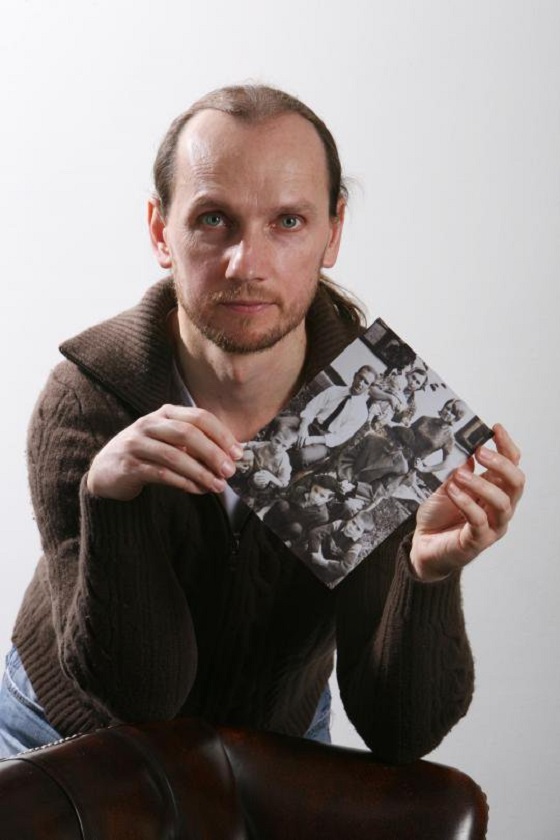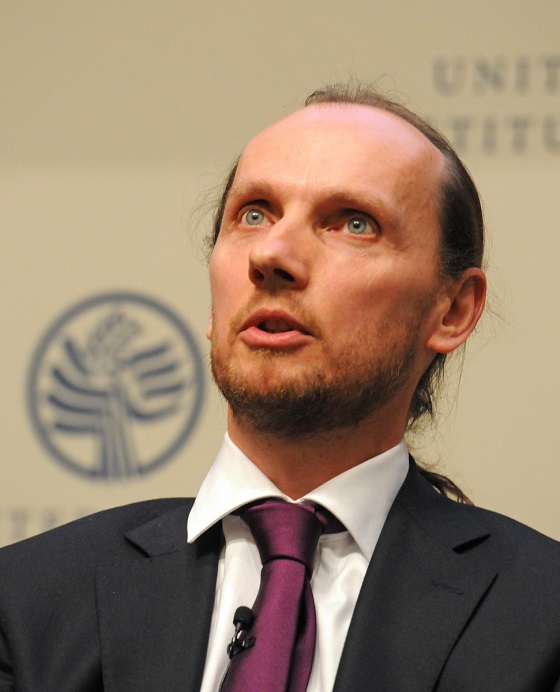A former refugee is to share his journey of coming to Britain from war-torn Bosnia as part of a worldwide campaign to develop a positive attitude to migration.
Kemal Pervanić will visit De Montfort University Leicester (DMU) to talk about war, suffering and exile as a survivor of the Omarska concentration camp in Prijedor.

The human rights activist has received widespread critical acclaim for talking so candidly about his refugee journey.
He will tell his story on Thursday 19 April as DMU takes the lead in engaging the higher education sector in the UN’s Together campaign. The university is helping to highlight the current challenges faced by refugees in local communities.
The day of insightful talks is part of a four-day Migration and Refugee Exhibition at The Gallery, which runs from Wednesday 18 April to Saturday 21 April.
Kemal said: “It’s very important to me to be part of this event as I don’t think most people understand that ‘refugee’ is one of the worst words that can be used. It means as a human being you have to re-discover how to live after being rejected by society.
“The journey back to being an active citizen is incredibly hard. I was a victim but I had to learn to forgive my perpetrators and I’m now working with my former enemies to prevent further conflict.”
Kemal, who is now a British citizen, set up a charity called Most Mira (Bridge of Peace) in 2008 to bring together Bosnian children of different ethnicities, including Serbs, Muslims and Croats, through art.
He divides his time between the UK and Bosnia, working on grassroots peace-building projects to prevent future generations making the same mistakes. His charity has organised arts festivals and he plans to build a Peace Centre in his home village of Kevljani to host future events.

Kemal has worked with Professor Kenneth Morrison, Professor of Modern Southeast European History at DMU, to create three large storyboards telling the story of his journey – from his imprisonment in Omarksa to the building of the Peace Centre. A documentary about Kemal’s life entitled Pretty Village will also be shown alongside a scale model of the Peace Centre. Collectively, this will form the centrepiece of the exhibition.
Professor Morrison said: “Kemal’s speech will doubtless be fantastic. Those who come along can expect a very powerful and passionate talk about his time in the Omarska Camp and his subsequent journey towards establishing Most Mira.
“Kemal is using his experience as a refugee to tell a very important story and he continues to dedicate his life to peace-building work. His is one of the most inspiring stories you’ll hear.”
Kemal, who is the author of The Killing Days, gave a very well received lecture at DMU in 2012 as part of Professor Morrison’s ‘Yugoslavia and Beyond’ course.
The exhibition also includes a range of research topics, such as students’ raising their political awareness by working with refugees and migrant communities, gay Iranian migrants in the UK, the role of forensic science in identifying missing migrants in the Mediterranean and poems about refugees.
Thought-provoking talks will also be delivered by a wide range of DMU scholars on the history of migration and refugees, and on the current work of students working with refugees. Topics to be addressed will include Germans in Britain during the First World War and Refugees from Nazi Germany.
Professor Morrison added: “We hear so many stories about refugees, and so many of them are, unfortunately, negative.
“We all need to think of refugees as human beings and we need to engage with them in a positive way – they can offer so much.”
RELATED NEWS
DMU student shares her experience as a refugee during visit to UN HQ
DMU students help refugees in New York
Students speak at the United Nations
Deborah Cartmell, DMU’s Associate Dean of Research and Innovation, Arts, Design and Humanities, said: “We’re amazed at how much activity and interest there is in the subject on migration and refugees across the institutions and we see this as a terrific opportunity to bring this research together in what could be the beginning of a new DMU research centre or network.”
Posted on Monday 16 April 2018